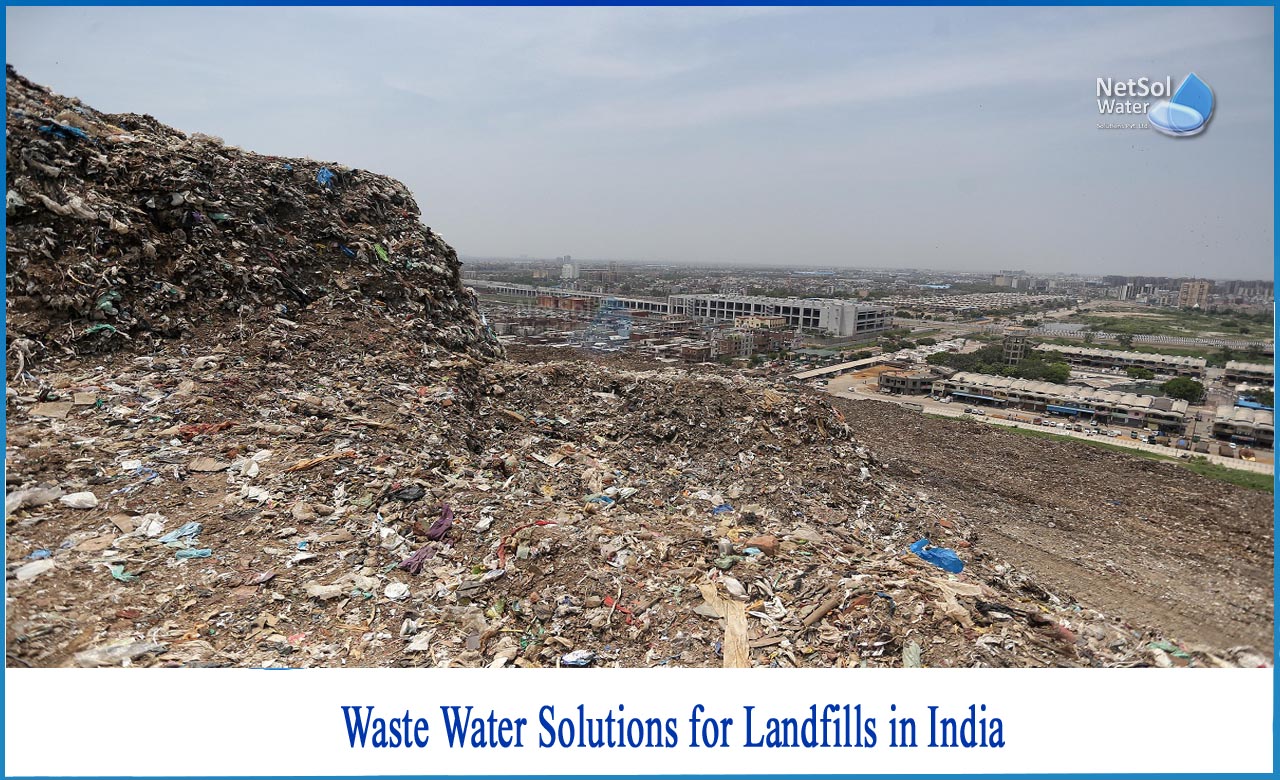How can we solve landfill from waste water?
Municipal solid waste is disposed of most commonly in landfills. Landfills, in general, are made up of an inhomogeneous mix of materials, with a considerable amount of organic matter as well as soluble mineral components. Rainwater pouring into the landfill, as well as moisture in the waste, result in extremely filthy leachates. It can also arise as a result of inadequately sealed landfill liners allowing groundwater infiltration.
As a result, there are major variances in volumetric flow and chemical composition. If untreated leachate is allowed to enter water systems, it poses a hazard to the environment, prompting governments to pass stricter pollution control and landfill wastewater treatment laws. Most of the time, treating landfill leachate to fulfil criteria is enough, and it can then be transported to the nearest municipal wastewater treatment plant for additional processing.
If this isn't possible, the leachate might have to be treated to meet the requirements for direct discharge into a river, stream, or lake.
Management of leachate
Leachate management is one of the most significant long-term ongoing costs for landfill care. In many regions, it accounts for up to 20% to 30% of operations and maintenance (O&M) costs. Furthermore, leachate management occurs long after most landfills have closed, and it will continue to be subject to changing regulatory requirements.
While it's critical to evaluate the unique circumstances of each landfill before making any decisions, I've compiled a list of general observations on variables that may assist you in developing a complete, cost-effective, and environmentally sound approach to leachate management.
1: Reduction of Leachate: Storm water control strategies decrease leachate generation, and slopes, channels, and temporary and permanent coverings should all be carefully considered. Stormwater management can reduce the amount of leachate produced, but it will not eliminate the requirement for leachate management.
Leachate recirculation can be a viable leachate management strategy if site circumstances are favourable and regulators are supportive. Recirculating leachate improves trash breakdown, boosts landfill gas yield, and speeds up air space recovery.
The technique of leachate recirculation has a small positive effect, according to cost-benefit evaluations. This means you acquire more air space and methane from recirculation than you have to invest in infrastructure and energy.
2: Evaporation of Leachate: This approach decreases the volume of leachate, resulting in water vapour and a leachate concentration that can be recycled into the landfill. Fuel sources include landfill gas, waste heat, and natural gas. Evaporation is energy-intensive, but if a site lacks access to more cost-effective alternatives, it can be cost-competitive. Evaporation ponds may be used at sites in semi-arid and desert environments with sufficient land resources.
3: Treatment of Leachate: Biological techniques, such as activated sludge, can be used to treat leachate. Metals, ammonia, and dissolved particles, among other characteristics, are removed via physicochemical methods.
Membrane separation is a good way to clear mixed liquid that is created during biological therapy. Reverse osmosis can create high-quality effluent, which includes the removal of leachate's characteristic dark brown-black hue. Biological treatment and metals precipitation generate sludges that may normally be disposed of at the landfill where the leachate is generated after dewatering.
Biological treatment and clarity units require smaller reactor volumes and aeration capacity than a comparable plant discharging to surface water, resulting in cheaper costs. On-site treatment is often more cost-effective than carrying leachate for off-site disposal, which is subject to fuel price swings, increased truck traffic, and operational flexibility constraints.
Make sure to undertake an economic analysis to assess site-specific factors, define treatment goals, and compare alternatives to choose the best leachate management strategy.
Netsol Water is Greater Noida-based leading water & wastewater treatment plant manufacturer. We are industry's most demanding company based on client review and work quality. We are known as best commercial RO plant manufacturers, industrial RO plant manufacturer, sewage treatment plant manufacturer, Water Softener Plant Manufacturers and effluent treatment plant manufacturers. Apart from this 24x7 customer support is our USP. Call on +91-9650608473, or write us at enquiry@netsolwater.com for any support, inquiry or product-purchase related query.



